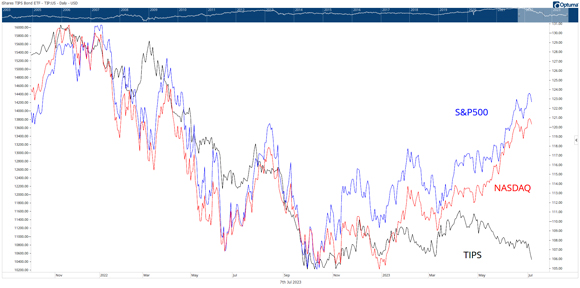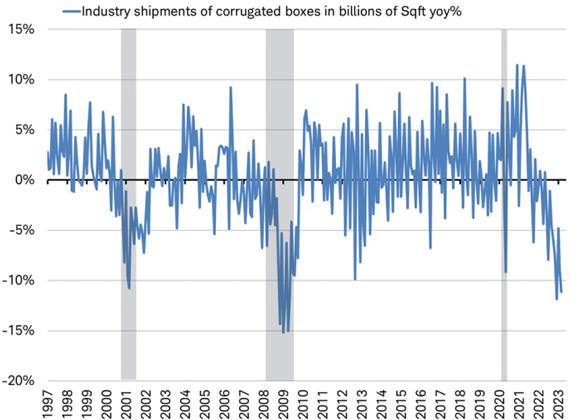What's Not Priced In #7: Is the Market Asleep To Jaws of Death?
I sometimes like to stump Greg Canavan at the start of a What’s Not Priced In episode with a quote that captures the spirit of the show.
I tried to stump him this week (a stumping unequivocally in the spirit of the game).
The quote is attributable to legendary investor Howard Marks, co-founder of Oaktree Capital.
In 2022, he said this in one of his widely read memos (my emphasis):
‘I quickly recognized that my strong performance resulted in large part from precisely that fact: I was investing in securities that practically no one knew about, cared about, or deemed desirable…If you seek superior investment results, you have to invest in things that others haven’t flocked to and caused to be fully valued. In other words, you have to do something different.
‘Remember, your goal in investing isn’t to earn average returns; you want to do better than average. Thus, your thinking has to be better than that of others — both more powerful and at a higher level. Since other investors maybe smart, well informed and highly computerized, you must find an edge they don’t have. You must think of something they haven’t thought of, see things they miss, or bring insight they don’t possess. You have to react differently and behave differently. In short, being right may be a necessary condition for investment success, but it won’t be sufficient. You have to be more right than others…which by definition means your thinking has to be different.’
The message was clear and harkened back to his famous memo from 2006 on daring to be great: ‘you can’t take the same actions as everyone else and expect to outperform’.
The path to superior returns is the path less travelled.
With that in mind, here’s the latest episode of What’s Not Priced In.
What we talked about -- a précis
This week, Greg and I struggled to find the right analogy to explain the bullish sentiment over in the US. Are investors asleep at the wheel careening toward a hard economic reality?
For Greg, the market is still grossly underpricing the reality of higher for longer interest rates.
Partly as a consequence, Greg thinks tech valuations are overstretched and his chart of the week illustrated why.
We then had a great discussion on whether the mega-cap tech stocks have any parallels to the Nifty 50 growth stocks of the 1970s. Greg pointed out today’s tech giants are unique in their monopolistic nature and capital-light makeup.
We then turned to Australia, discussing the more grounded sentiment of Aussie investors. And that’s no surprise, the ASX 200 has gone nowhere in two years and will likely languish further.
We also covered the weakening Aussie dollar and the outlook for key commodities like copper and iron ore as China’s economic recovery continues to disappoint.
We wrapped up with our stock of the week. No matter how you package it (hint), the outlook isn’t great.
Contrarianism and thinking off the beaten path
We don’t want to fall into a trap of slavishly paying attention to what’s trending in the news and constantly thinking along the same lines as everyone else in the market.
If you’re doing exactly what everyone else is doing…and thinking exactly what everyone else is thinking, then, as Marks pointed out, you won’t outperform.
If you think like the market, you’ll get paid like the market.
To outperform, you must outthink. And to outthink you must do something different.

And that brings me to the topic hotter than Twitter’s rivalry with Threads — interest rates.
Interest rates, redux
Everyone’s been talking about interest rates for months now, wondering what the US Fed and the RBA will do…
Even the watercooler itself is exhausted.
But if the market is so heavily focused on interest rates, what’s the chance you have an insight the market doesn’t already have?
How can you apply your analytical skills fruitfully to this topic?
Going back to Marks, his firm employs zero economists. Marks categorically rules out making investment decisions on macro forecasts.
Should others?
One can ask, will things be materially different if the Fed said it was finished hiking than if it said it was going to raise twice more?
In either case, interest rates are much higher than they were a year ago. And whether rates go up 50 or 100 basis points from here won’t change the fact we’ll be living with elevated interest rates for a while yet.
So what’s the use in sweating over an extra few hikes? Will that make a material difference?
In a ruminative 2022 memo on the essentials of investing, Marks recalled:
‘In late 2015, virtually the only question I got was “When will the first rate increase occur?” My answer was always the same: “Why do you care? If I say ‘February,’ what will you do? And if I later change my mind and say ‘May,’ what will you do differently? If everyone knows rates are about to rise, what difference does it make which month the process starts?” No one ever offered a convincing answer. Investors probably think asking such questions is part of behaving professionally, but I doubt they could explain why.’
It’s easy to be as right as the consensus and accept the average returns in the process.
With a topic as saturated with commentary as interest rates, investors must till soil untrampled by the herd.
For Greg, the key divergent view is that we’ll be living under high interest rates for longer than most market participants realise.
And any rate cuts won’t be something to celebrate; they’ll be central banks admitting something is broken.
Chart of the week: the 'jaws of death'
To hammer home the point that the market is oblivious or blind to the economic reality, Greg showed this great chart below.
It plots the two major US stock market indices against the price of the US Treasury Inflation-Protected Securities (TIPS).
As the price of TIPS falls, real yields rise, pressuring stocks.
And the correlation between TIPS and US stocks has been strong…until now.
Instead of tracking lower with the price of TIPS, US stocks have diverged.
How long can that last?
What happens when these 'jaws of death' snap shut?
Watch the full episode to find out!

Stock of the week
This week’s stock is down 20% from its peak.
Like I hinted in the intro, whatever way you package it, the outlook isn’t great.
I’m talking about Amcor [ASX:AMC].
As a global packaging company, Amcor is sensitive to wider business cycles. If people slow their spending (and businesses pack and ship less stuff), Amcor’s revenue outlook sours.
On a related note, the chief global investment strategist at Charles Schwab released a note last month saying the US is a ‘cardboard box recession’:
‘Items that are made (manufacturing) and shipped (trade) tend to go in a box. Demand for corrugated linerboard, what most cardboard boxes are made from, has fallen similar to past recessions, as per data from the Fibre Box Association. The latest drop is reminiscent of the demand behavior during those shaded periods on the chart below denoting global recessions.’

Hope you enjoy this week’s episode!
5 topics
1 contributor mentioned
.png)
.png)